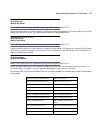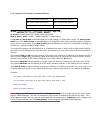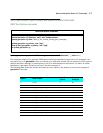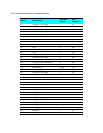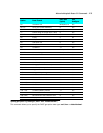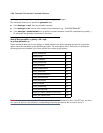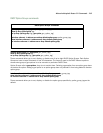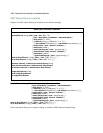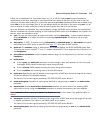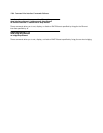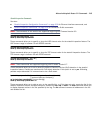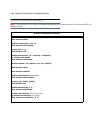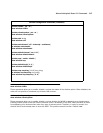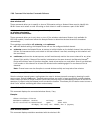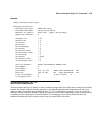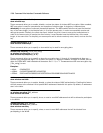
Motorola Netopia® Router CLI Commands 2-83
A filter can be identified by its ones-based index, [e.g.] 1, or with the special new keyword. Subsequent
modifications to this filter, assuming no more filters have been added to the filter set yet, must be done by
referring to the filter either by id (1), or by the other special keyword last. Subsequent filters can be added using
either new or by the next integer filter id. You can always specify the last filter in the set by using last. It is an
error to attempt to create a new filter whose id is not 1 greater than the id of the last filter.
Up to two filtersets can be added. Your router supports a single LAN DHCP server instance, but an additional
filterset is available for use when bridging, to block undesired DHCP traffic. Up to 8 rules can be created in the
filterset, which are evaluated in order.
■ type: The rule can either specify an option and option contents dhcp-option, a client hardware address
range hw-address, or an option the client is requesting requested-option. By default a rule is of type
dhcp-option.
■ dhcp-option: (1..255 ) If the filter is of type dhcp-option or requested-option, the dhcp-option information
determines which DHCP option is specified. See page 2-77 for a table of DHCP options.
■ match-str: The match-str string_w_wildcards will be compared against the DHCP DISCOVER option data.
This string can contain multiple “*” and “?” wildcard substitutions. This is supported only if the filter is of
type dhcp-option.
■ start-address/end-address: a client hardware address range. This is supported only if the filter is of type
hw-address.
■ match-action:
■ If set to pass, the match-pool parameter is used to assign a pool start address, or 0.0.0.0 to pass
unchanged. DHCP packets matching the option string will pass.
■ If set to discard, DHCP packets matching the option string will be blocked.
■ If set to continue, the remaining rules in the filter will execute.
■ match-pool: Specifies the start IP address of the range within a DHCP pool where that range will be used to
allocate an address if the wildcard matches.
The value 0.0.0.0 means regular processing; 255.255.255.255 means discard.
■ match-option-group: Specifies an option group identified by opt-group-tag, or none for the match-action
parameter.
■ absent-action: As with match-action, absent-action describes the action taken if the matching DHCP
option was not found, using the absent-pool parameter to provide the necessary pool start address.
Note: absent is NOT the opposite of match. The absent- part of the rule is taken if the specified option is
absent.
■ absent-pool: Specifies the start IP address of the range within a DHCP pool where that range will be used
to allocate an address if the option in the DHCP packet is not present.
The value 0.0.0.0 means regular processing; 255.255.255.255 means discard.
■ absent-option-group: Specifies an option group identified by opt-group-tag, or none for the absent-action
parameter.



